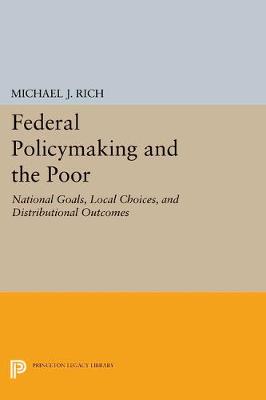Princeton Legacy Library
1 total work
Do federal, state, and local governments differ in their responsiveness to the needs of the poorer citizens? Are policy outcomes different when federal officials have greater influence regarding the use of federal programme funds? To answer such questions, Michael Rich examines to what extent benefits of federal programmes actually reach needy people, focusing on the relationship between federal decision-making systems and the distributional impacts of public policies. His extensive analysis of the Community Development Block Grant Programme (CDBG), the principal federal programme for aiding cities, reveals that the crucial divisions in domestic policy are not among the levels of government, but between constellations of participants in the different governmental arenas. Rich traces the flow of funds under the CDBG from programme enactment through three tiers of targeting - to needy places, to needy neighbourhoods, and to needy people - and offers a comparative study of eight CDBG entitlement communities in the Chicago area.
He demonstrates that while national programme parameters are important for setting the conditions under which local programmes operate, the redistributive power of federal programmes ultimately depends upon choices made by local officials. These officials, he argues, must in turn be pressed by benefits coalitions at the community level in order to increase the likelihood that federal funds will reach their targets.
He demonstrates that while national programme parameters are important for setting the conditions under which local programmes operate, the redistributive power of federal programmes ultimately depends upon choices made by local officials. These officials, he argues, must in turn be pressed by benefits coalitions at the community level in order to increase the likelihood that federal funds will reach their targets.
